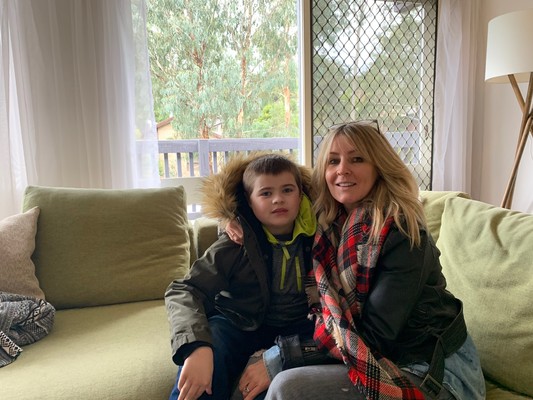Parents of children with a disability often find they have to take on the role of advocate as well.
Here, Toni Kilgariff, from disability services provider Scope and mum of 11-year-old Cohan, who has autism, offers her tips for parents about getting through the tough times and being the best advocate.
1. Get ready to research
No one hands you a manual with your child’s diagnosis! From the day my son was diagnosed with autism at 18 months, I have spent my entire life (or so it feels) on the internet researching. If I’m not researching autism, it’s therapies, therapy aids, inclusive activities, the NDIS, schools, my son’s medical conditions … the list goes on!
2. As a parent, you’ll wear many hats
You’ll spend so much time learning and implementing therapies for your child that, after a while, it just becomes a way of life. Before you realise it, you’ve become your child’s advocate – advising carers, therapy assistants, and sometimes even school teachers on how to best help your child!
My son attends mainstream activities, so I spent a lot of time in the beginning teaching cub leaders and gymnastic coaches how to communicate with my son and make him feel part of the group. Seeing Cohan get enjoyment from the same things other kids get to do makes it all worthwhile.
3. Finding the right support
With varied therapies and therapists options, it can be overwhelming. However, it’s important to find ones that are the right fit for your child. Go with your gut and know it’s OK to disagree or get a second opinion. We know our child better than anyone and if you’re not happy or feel like it’s a waste of time, it probably is!
4. Building a circle of support
Seeking help is important. Building relationships with people who can support you – either in person, online, or even over the phone – can ease some of the pressure that comes with raising a child with disability.
Along with bringing your family on this journey, it’s important to create a network of support around your child – childcare, school, therapists, parent circles, and online groups.
My son goes to an autism-specific school and, even though he’s only 11, it’s already his third. Still, we’re much happier with this school because they have an open-door policy. This means they welcome support from family and external therapists, and work with them as a team.
Building a good relationship with the school and your child’s teacher is so important. One thing I have learned over the years is to speak up. If you feel like you’re not being listened to, don’t be afraid to speak your mind.
5. Preparing for meetings and appointments
Always have a list of questions written down before any meeting or appointment and make notes as you go. You might find that with stress and sleepless nights, you forget half the things you spoke about by the time you get home. It’s also important to keep copies of everything — ask for everything in writing.
People ask me all the time, “how do I do it?” The long and short of it is that no one else is going to come and do it for us – so what are the options? Some days I do better than other days, and some days the wheels totally fall off and I collapse in a heap. However, I always manage to dust myself off and carry on. My son needs me to be his advocate, so that’s what I do.








